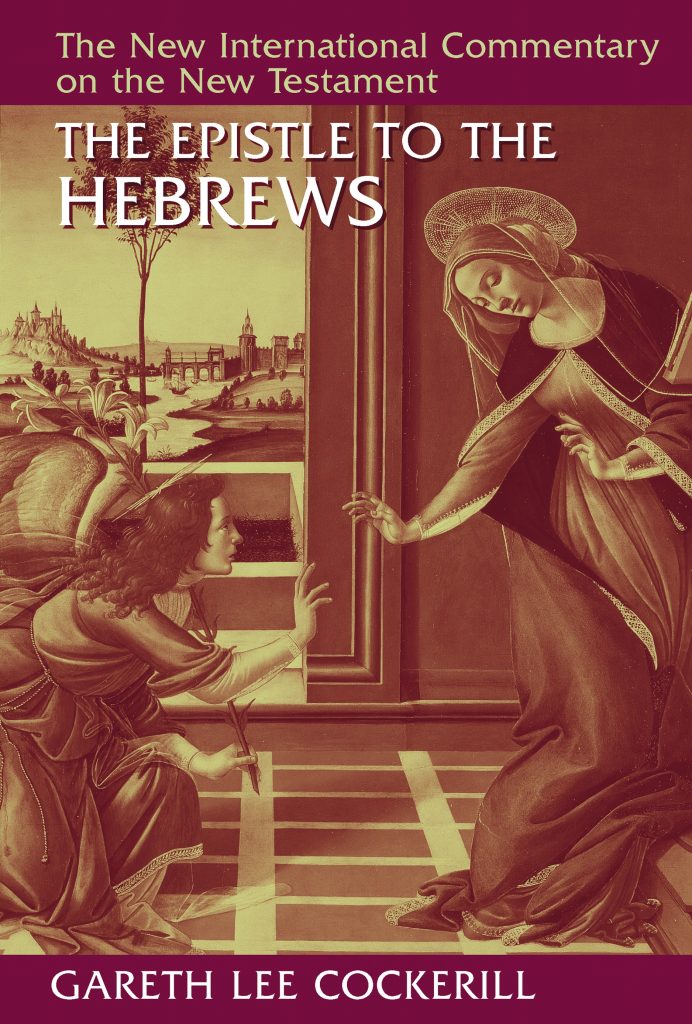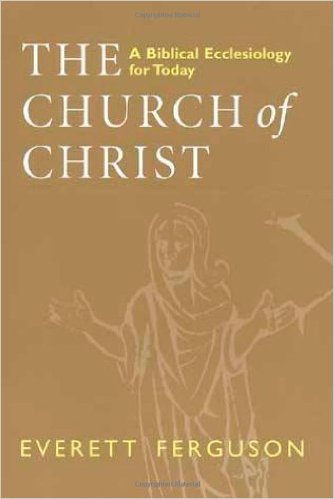If you died today, what might you regret you’d left unsaid? Such death-bed regrets are common. Many dying people regret that they didn’t say “I love you” more often. Others conclude they should have spoken their mind more, expressing their feelings courageously instead of holding back and resenting things. (For some common death-bed regrets, see here and here.)
Though Jesus had no such regrets at his death, he did have things that he wanted to say, but couldn’t, before he died. Rightly understood, we could even say that Jesus didn’t say everything he wanted to say before he died.
In Sunday school right now we are studying John 14-16, which record Jesus’ final teachings to his disciples before he died. Jesus shared profound things in these final hours. We are deeply grateful for these last words. They are a deep reservoir of truth and hope.
But Jesus had still deeper things in his heart, things he simply could not share prior to his death:
“I still have many things to say to you, but you cannot bear them now.” (John 16:12)
This cryptic statement invites questions:
- What was it that Jesus left unsaid?
- What did he mean that the hearers would need to “bear” them?
- Why were the disciples unable to bear them at that moment?
- What did they need first, in order to be able to bear them?
To begin answering these questions, I direct you to Jesus’ next words:
When the Spirit of truth comes, he will guide you into all the truth, for he will not speak on his own authority, but whatever he hears he will speak, and he will declare to you the things that are to come. He will glorify me, for he will take what is mine and declare it to you. (John 16:13-14)
Whatever else Jesus means by these words, this much is clear: The red letters of Scripture are not enough. Our Sunday school quarterlies state this well:
The teachings Jesus left for us include more than just His words in the four Gospels. This refutes those who say that they go by only what Jesus taught but not what Paul or the other New Testament writers taught. The Holy Spirit guides us into all truth. He does it through the New Testament especially, but also through the Old Testament…
The disciples could not understand or bear all that Jesus would teach, and so He would teach more through the inspired writings of the New Testament.
Notice, that sentence at the end of the first paragraph does not say “though the red letters especially,” but “through the New Testament especially.” That is correct. If the Holy Spirit indeed took what was Jesus’ and declared it to the apostles (John 16:14), then the apostolic writings—the black letters of the NT—are Jesus’ words, too.
I wrote about this in my essay “Red Letter Reductionism.” Here is part of what I wrote:
The “raw data” of Jesus’ perfect revelation of the Father is most clearly and fully understood when we interpret it through the lens of the Old Testament passages that he most often cited and through the writings of the apostles he commissioned. Many of the Bible’s most prominent landmark mountains are found outside the red letters…
Apart from the events of Passion Week through Pentecost and on to the final return of Christ, the teachings and example of Jesus’ earthly ministry are an insufficient gospel and cannot save.
Please don’t preach a red letter reductionism, and please don’t be a prepentacostal disciple… There are “many things” from Jesus that you will miss if you value only what is found in red letters. How do we know? Jesus himself told us—in red letters, no less.
If you want to wrestle with this topic more deeply, I invite you to read my whole essay. [Edit 8/20/2017: Here is an updated version of the same essay.] It’s not perfect, but it’s better than when I first wrote it, thanks to feedback.
Here are other things I discuss in the essay:
- What is red letter Christianity?
- Is red letter Christianity harmless?
- Did Jesus say John 3:16, and does it matter?
- Are the words of the apostles authoritative?
- Did Jesus and Paul preach the same gospel?
- Is the Sermon on the Mount the gospel?
- Are Anabaptists truly excited about the gospel?
We should also recognize that Jesus still speaks by his Spirit today. This is a contended topic, but consider this commentary by Gary Burge:
[In John 14:26] Jesus describes a different function of the Paraclete, namely, recalling and preserving the historic words of Jesus. Here in 16:12–13 Jesus speaks of a future time when new things will be disclosed. Both of these passages work together. The historical Jesus and his ministry stand alongside the ongoing living Jesus-in-Spirit, who is continuously experienced in the church…
“What is yet to come” in 16:13b… likely refers to a genuine prophetic gift that will disclose the future—a gift like that exercised in the book of Revelation and described in 1 Corinthians 12:29–30. The Spirit’s “making known” is not of Jesus’ previous historic teachings nor is it confined to the eyewitnesses of the apostolic era, whose prophetic work will close with the canon. (pp. 406-407, bold added).
Notice that Burge is pushing beyond the interpretation I emphasized above. He is saying that John 16:12-14 foretells not only the inspiration of the New Testament writings (as I stated), but also the ongoing work of the Holy Spirit in the church yet today. I think he is right. But not everyone agrees:
Evangelicals have traditionally preferred to see this work of the Spirit [described in John 16:12-13] as closely tied to the development of Scripture and its use. This is in part an exegetical decision that believes that the promises of this section belong not to the church universal but to the apostles only. “I have much more to say to you” (16:12, italics added) points to Jesus’ immediate audience. Hendriksen’s well-known commentary on John thus sees this ongoing revelation in 16:12 as fulfilled in the writing of the book of Acts and Paul’s letters.
But if the Spirit’s work goes beyond the production of the Scriptures—that is, if we have here a genuine prophetic gift that provides ongoing revelation—we then have to discern the guidelines and limitations for such revelation. Is this promise (like so many biblical promises) extended to every Christian? I would argue that it is…
Interpreters who refuse to apply this promise of the Spirit to the postapostolic church must then justify how they can apply other spiritual promises to the church. Who owns the promise, “I will come again and take you to myself” (14:3) when it was addressed to the Twelve? These promises, just like the command to “love one another,” belong both to the circle of apostles and to the later church. (pp. 413 and 423, bold added)
Later Burge suggests some biblical guidelines for identifying this ongoing work of the Spirit:
Jesus says that the Spirit will unveil things they have not heard. Such an understanding, of course, has led to countless abuses over the centuries as self-appointed teachers and new-age prophets have laid claim to the Spirit’s authority as they unveiled new, unbiblical teachings. These abuses have made modern exegetes understandably cautious about such ongoing revelation…
The best evidence for the view that John’s followers understood the Spirit to have ongoing revelatory power can be seen in the abuses John had to combat in his first letter. Since many false prophets have gone out into the world, John’s followers need to start testing the spirits to see if they belong to God (1 John 4:1). John does not disqualify the spiritual endowment in his argument with these teachers; he calls for the testing of the gift… Here John gives strict guidelines: “This is how you can recognize the Spirit of God: Every spirit that acknowledges that Jesus Christ has come in the flesh is from God, but every spirit that does not acknowledge Jesus is not from God” (1 John 4:2–3). This is the same test Jesus outlines in John 16:14–15. The Spirit will glorify Jesus and not depart from what he has revealed already. To refuse to glorify Jesus is to invalidate one’s prophetic voice.
Therefore, as we look at the work of the Spirit today, we see that not only does the Spirit recall, authenticate, and enliven the teaching of Jesus for each generation, but also the Spirit works creatively in the church, bringing a new prophetic word. This word never contradicts the historic word of Jesus and never deflects glory away from Jesus, but it may faithfully bring the church to see its message and mission in a new way…
To restrict the Spirit’s voice to the work of historic recitation, that is, to the application of the biblical text, is to restrict the Spirit’s effort to speak to contemporary issues. It is interesting that in Paul’s writing, he lists prophets and teachers in the second and third places of authority after apostles (1 Cor. 13:28) [sic: 1 Cor. 12:28]. In Acts 13:1 prophets and teachers led the church at Antioch where there were no apostles. The Spirit both equips those who guide the church into the deeper meaning of Scripture (teachers) and those who have a contemporary word, a dynamic word for the church in its world today (prophets). (pp. 418-419, bold added)
Again, this second way of interpreting John 16:12-14—as foretelling not only the inspiration of the NT but also the ongoing work of the Spirit in the church today—is debated among Christians. This is a debate that goes beyond the “red letter reductionism” debate above, although it is related. In both cases, it is a question of how Jesus continued or continues to speak after his own death.
I think Burge is right. I think I need to listen to his explanation in the same way that I think “red letter Christians” need to listen to the sort of explanation that I make in my essay.
Whatever you make of these matters, may we each purpose to honor Christ by listening to the words given through his Spirit.
If you have feedback on this post or on my essay, send me an email or leave a comment below. Thank you, and God bless your church gatherings this week as you discuss his word—both the red and the black letters!


